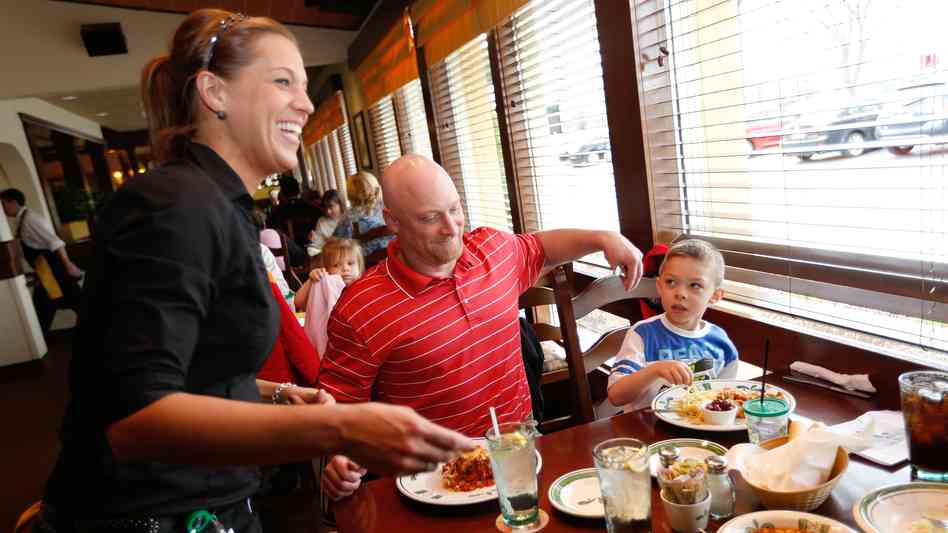(Source: AP via NPR)
Outbreaks of E. coli always grab national headlines, but equally dangerous to public health is norovirus, or the winter stomach flu. The Centers for Disease Control and Prevention reports that as much as 90 percent of norovrius outbreaks can be traced to sick restaurant workers.
That’s because sick restaurant workers cannot afford to take time off needed to get healthy again. Ninety percent do not have paid sick days, according to a survey of 5,000 workers conducted by my organization, Restaurant Opportunities Centers United (ROC United).
| Ninety percent of restaurant workers say they must work even when they are sick. They don’t have paid sick days. Expect to see more outbreaks of norovirus, hepatitis A and E. coli. |
It doesn’t stop there. The lack of paid sick days is growing into a public health crisis.
In 2011, a server at an Olive Garden in Fayetteville, North Carolina, was forced to work despite having contracted hepatitis A. The local county health department required that 3,000 Olive Garden customers be tested for the disease; a group of them filed a class-action lawsuit against the national restaurant chain for exposure to hepatitis A. They won a large settlement. That same year saw two norovirus outbreaks in Olive Garden restaurants in Indiana and Illinois.
Restaurant workers report going to work with everything from the common cold to swine flu (H1N1). One worker testified to having served food while suffering from typhoid fever. These workers do not work while sick because they want to; without paid sick days, restaurant workers are forced to work while sick. They are often told they will be fired if they don’t.
The federal minimum wage for tipped workers—$2.13 an hour—compounds the problem. Such workers make their living from tips and are forced to work by necessity. They end up prolonging their illnesses, infecting co-workers, and endangering everyone who eats out.
Restaurant owners say they are doing nothing illegal by not providing sick days. That’s true. Equally true is the fact that the National Restaurant Association, the owner’s lobby, do not just follow the law—they help make it. The National Restaurant Association pours millions into sandbagging attempts to win paid sick days laws in cities and counties across the country.
The most sinister of these efforts stems from an alliance between the National Restaurant Association, the American Legislative Exchange Council (ALEC), and Darden, the Fortune 500 corporation that owns Olive Garden, Red Lobster, and eight other brands. Together they have introduced bills in more than a dozen states that prohibit any locality in those states from passing paid sick day ordinances. The bills have already passed in eight states.
Despite the CDC’s numerous reports, the public health community has been largely silent. The best-known food safety moments in recent history have made E. coli, pink slime, and salmonella household names. For some reason, incidents of food-borne illness arising from sick restaurant workers have remained largely hidden to the public. That has to change.
That affects our health and the health of loved ones every time we eat out.
Saru Jayaraman is the Co-Founder and Co-Director of the Restaurant Opportunities Centers United (ROC United), Director of the Food Labor Research Center at University of California, Berkeley. She authored Behind the Kitchen Door, a groundbreaking exploration of the political, economic, and moral implications of dining out.






0 Comments